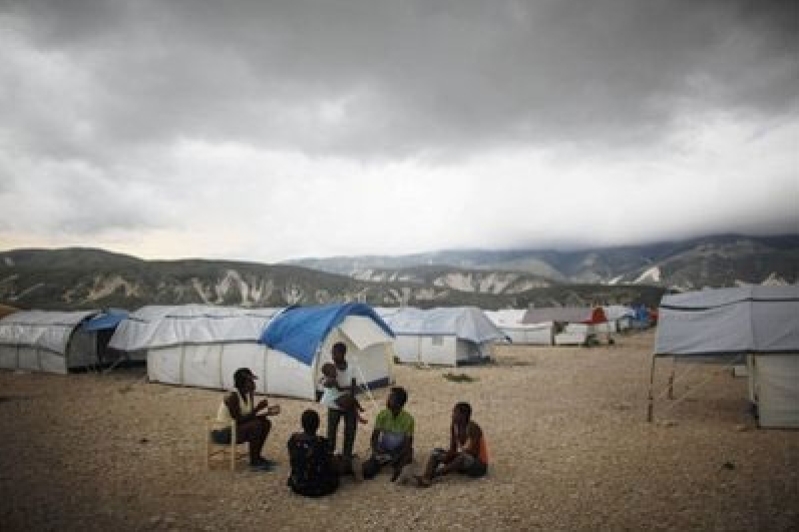
The standard of living in Haiti had not progressed much for decades and the earthquake just made life “exponentially worse,” said a mission leader who had lived in Port-au-Prince for two years.
“It is one of those nations where the level of human suffering and deprivation is just constant,” said John Boyd, president of Mission Aviation Fellowship. “Let me put it for you this way, the average Haitian who lived in a shack before the earthquake, now lives under plastic sheeting. It is not even a tent.”
MAF has served in Haiti since 1986 and is the sole operator that offers flights within the country. After the Jan. 12 earthquake, MAF was the first to provide flights to transport emergency responders, medical teams, supplies, and victims.
Boyd said the hundreds of thousands of quake victims do not have access to electricity, clean running water, or a sewage system.
Even before the quake, 90 percent of Haitians in Port-au-Prince did not have access to these basic utilities. But after the quake, the situation became worse because of damage to the infrastructure.
The professional pilot, who served as an aviation missionary in Port-au-Prince ten years ago, said before the earthquake, if a neighborhood had one electric light post, the locals would tap into it and there would be 500 to 600 loose wires with one wire used to light a single light bulb in a shack.
“The infrastructure was really decayed before and now it’s just exponentially worse,” Boyd explained.
Haiti is widely considered the poorest country in the Western hemisphere and one of the least developed. Most Haitians before the earthquake lived on $2 or less per day.
The devastating 7.0-magnitude quake struck 10 miles southwest of the capital Port-au-Prince in January, bringing down buildings and killing some 250,000 people.
Though over six months have passed, little change has occurred in Haiti since the quake. More than 1.5 million displaced people still live in some 1,300 tent camps, with 1,000 of those sites in Port-au-Prince. Crime and disease are rampant and law enforcement is “woefully inadequate,” said Boyd.
Worst of all, perhaps, is that there is no clear plan yet for rebuilding the country, which would take a global effort and hundreds of millions if not billions of dollars.
“I would encourage Christians in America to not forget Haiti in their prayers,” said Boyd. “Prayers are the bedrock of what can change lives and hearts.
“For a dad to think that he couldn’t feed his children and that there is no hope for those children to better themselves in any shape, form or size ... pray that God would work a miracle in Haiti to change hearts.”
The MAF president said the mission group is in Haiti to share the Gospel and to minister to people holistically.
Founded in 1945, MAF organizes missionary teams of aviation, communications, technology and education specialists to serve in remote areas. With its fleet of 58 bush aircrafts, MAF serves in 42 countries across Africa, Asia, Eurasia and Latin America. MAF pilots transport missionaries, medical personnel, medicines and relief supplies, as well as conduct emergency medical evacuations in remote areas.







